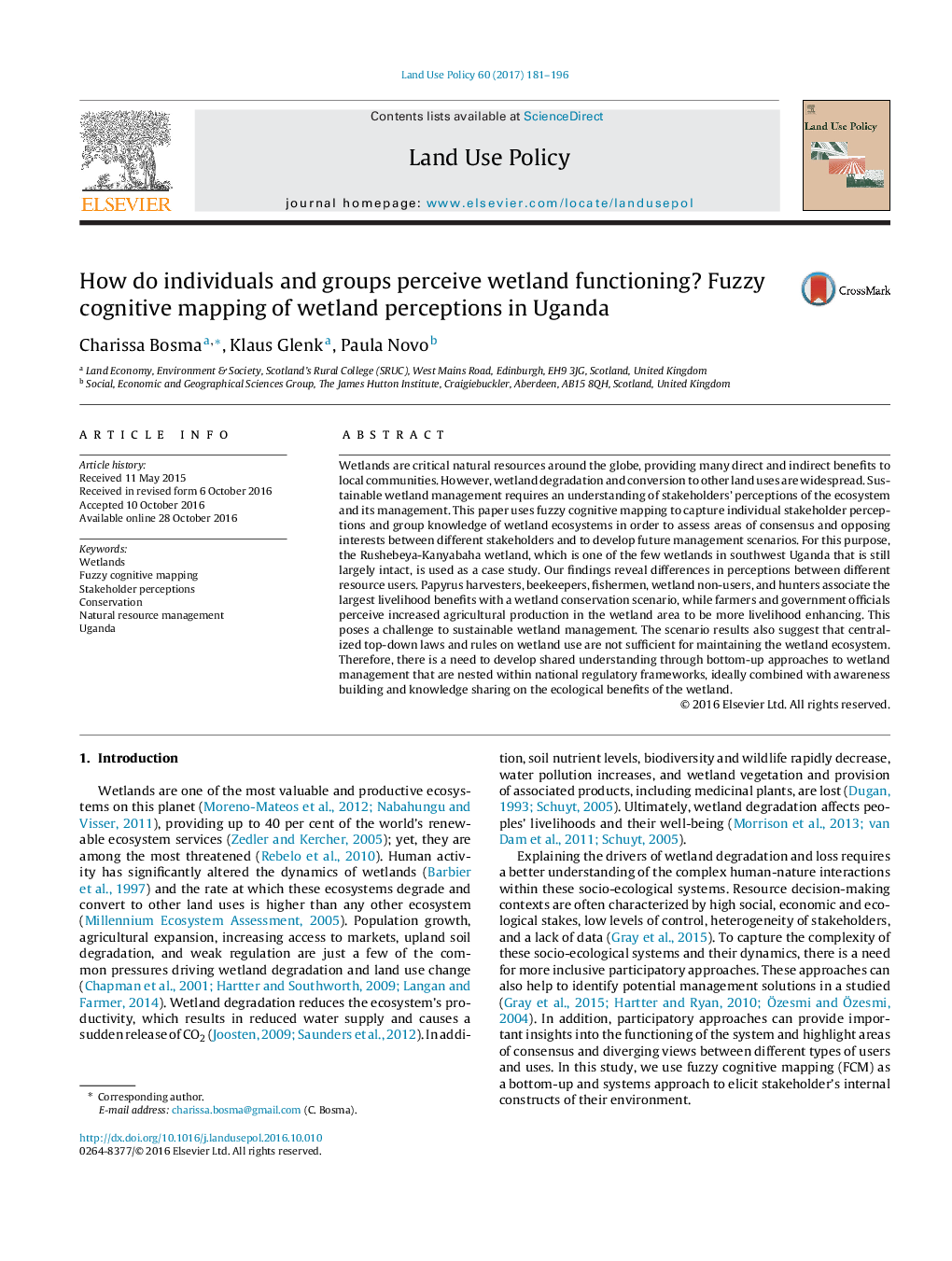| کد مقاله | کد نشریه | سال انتشار | مقاله انگلیسی | نسخه تمام متن |
|---|---|---|---|---|
| 6461406 | 1421823 | 2017 | 16 صفحه PDF | دانلود رایگان |
- Fuzzy cognitive mapping (FCM) is used to analyse perceptions of a wetland system.
- Stakeholders perceive wetland conservation and livelihoods as convergent goals.
- Farmers' and government officials' views on wetland differ most from other groups.
- Individual maps better fitted to find divergent perceptions than group maps.
- Nested approach of bottom-up and top-down wetland management should be considered.
Wetlands are critical natural resources around the globe, providing many direct and indirect benefits to local communities. However, wetland degradation and conversion to other land uses are widespread. Sustainable wetland management requires an understanding of stakeholders' perceptions of the ecosystem and its management. This paper uses fuzzy cognitive mapping to capture individual stakeholder perceptions and group knowledge of wetland ecosystems in order to assess areas of consensus and opposing interests between different stakeholders and to develop future management scenarios. For this purpose, the Rushebeya-Kanyabaha wetland, which is one of the few wetlands in southwest Uganda that is still largely intact, is used as a case study. Our findings reveal differences in perceptions between different resource users. Papyrus harvesters, beekeepers, fishermen, wetland non-users, and hunters associate the largest livelihood benefits with a wetland conservation scenario, while farmers and government officials perceive increased agricultural production in the wetland area to be more livelihood enhancing. This poses a challenge to sustainable wetland management. The scenario results also suggest that centralized top-down laws and rules on wetland use are not sufficient for maintaining the wetland ecosystem. Therefore, there is a need to develop shared understanding through bottom-up approaches to wetland management that are nested within national regulatory frameworks, ideally combined with awareness building and knowledge sharing on the ecological benefits of the wetland.
Journal: Land Use Policy - Volume 60, January 2017, Pages 181-196
